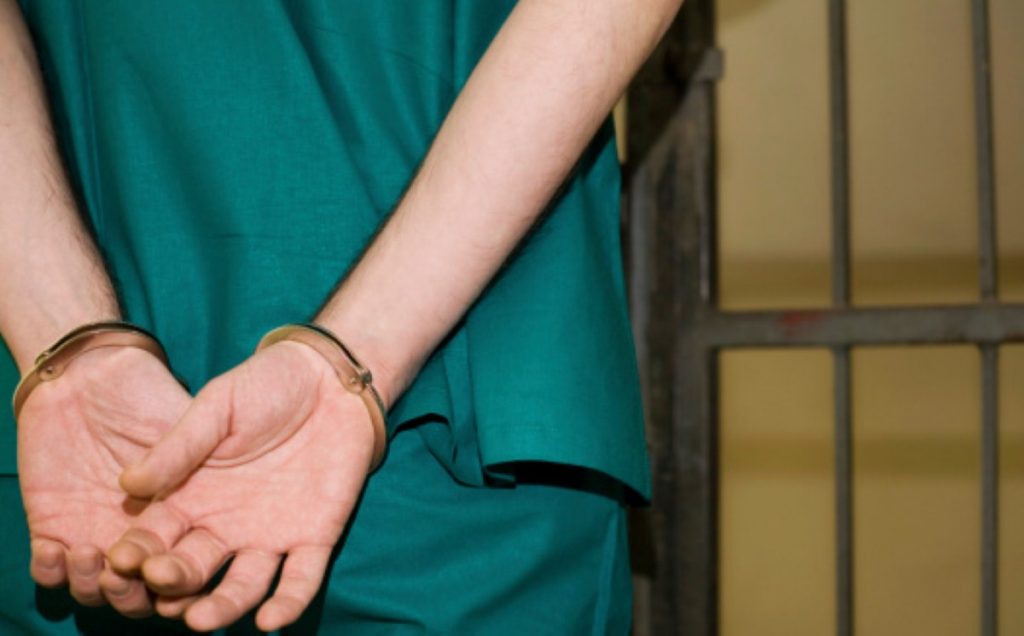Serco’s prison falls into chaos
When prison inspectors visited Serco-run Doncaster prison, they found numerous inmates too terrified to leave their cell.
You can see why. The report they published this morning reveals an institution descending into chaos. In the months before the investigation there had been "numerous acts of indiscipline", including hostage-taking and the use of barricades. Levels of assault were much higher than in similar prisons, with numerous violent incidents resulting in serious injuries, both to prisoners and staff. Half of the inmates told investigators they’d been victimised by other prisoners. A quarter of them currently felt unsafe.
In the six months before the inspection, there’d been 365 assaults. Many were serious. Many involved a gang setting upon a single victim. Early last year, one inmate was murdered.
"The last inspection report was awful, and this one is even worse," Frances Crook, chief executive of the Howard League for Penal Reform, says.


"Doncaster is a big, new, private prison, opened in 1994, but it is already infested with vermin and has fallen into disrepair. Prisons with too many prisoners and too few staff will fail, no matter how old they are'
It’s hard for prisoners to contact the media, but the appeals for help to the Howard League suggest the regime in Doncaster is failing on some of the most basic levels imaginable. One inmate told the charity he’d been in his cell without water or electricity for three days. He'd wanted to complain, but he wasn’t allowed out the cell even to get a complaint form.
A Muslim prisoner was held in segregation for three days without his medication. He complained he was being intimidated by staff and said no-one would supply him with Halal food.
The chief inspector of prisons report found that investigations into violence were weak and measures to address it ineffective. They warn that "professional boundaries" between staff and inmates were not "well managed". Ominously, they said "there was a lack of challenge to poor behaviour leading to a danger of collusion". As with so many prisons, but evidently more so in this one, there were simply too few staff and too many prisoners.

On top of the violence, there is a deluge of legal highs. It's the standard story: drug tests drove people away from cannabis, which was relatively harmless, and onto synthetic alternatives, which were untraceable but much more dangerous. Prison inspectors found they were widely available. Nearly half of prisoners thought it was easy to get drugs, with all the problems of violence and debt they usually bring on the inside.
The suicide and self-harm rate was very high too, with three self-inflicted deaths in the last 18 months and inadequate procedures to monitor those at risk.
These aren't even new developments, although they are clearly getting worse. Back in 1999, Doncaster already had the worst suicide record of any prison in England and Wales, even if that didn’t stop Jack Straw awarding it a Charter Mark for achievement. The squalor of the prison was noted by a watchdog in 2006. Two years later, prisoners were found to be sleeping in toilets because of overcrowding.
Serco has been running the prison like this for years – first with US firm Wackenhut Corrections and then, having bought up Wackenhut, on its own. But it's not just Serco's fault. Michael Gove and the prime minister appear to be retreating back to the view that you can fix prisons without addressing the prisoner-to-staff ratio. They fear the tabloid backlash from a sentencing policy which explores alternatives to incarceration, especially for minor offences. They insist building new prisons and adopting a more active approach to rehabilitation will fix the problem.
But the reports into Doncaster are clear. Staff are overwhelmed. There are too many prisoners. The fact the prison was only built in the 90s does not change the fact it is currently overrun with rats, that its windows are smashed and graffiti everywhere, with exposed wiring and filthy cells. The new prisons will descend into disrepair and chaos just as quickly if more radical change isn’t implemented.
Michael Spurr, Chief Executive of the National Offender Management Service, said:
"This is a disappointing report which reflects the considerable challenges Doncaster is currently facing.
"There have been a number of improvements since the time of the inspection, including an increase in the number of staff and the refurbishment of the prison accommodation.
"However we will continue to monitor the prison closely through a formal performance management process until the concerns highlighted by the independent inspectorate have been satisfactorily addressed."
Serco's managing director for justice, Julia Rogers, said: "At the time of this inspection in October, we were already four months into a formal rectification programme with considerable help from our customer, which involved the appointment of a new Director and management team; a reduction in the Operational Capacity of the prison; a top-to-bottom redecoration of the accommodation; a significant increase in staff numbers, and an intensive staff training programme.
"We acknowledge that conditions at the time of the inspection were unacceptable, but today the programme is now nearly complete and Doncaster is a very different prison to the one that was inspected six months ago.
"We are continuing to address the issues raised in this inspection and safety has improved, violence is gradually reducing and the houseblocks have been refurbished. Most importantly, the number of staff at the prison has increased by 38% since October and we are no longer understaffed.
"However we know we have much more to do; we will continue to work hard to drive down violence in the prison and to support the victims of violence and support those prisoners in crisis.
"Doncaster has a history of having previously been an excellent prison and we are determined that it will be once more in the very near future."












